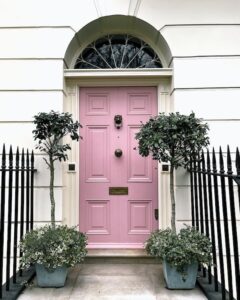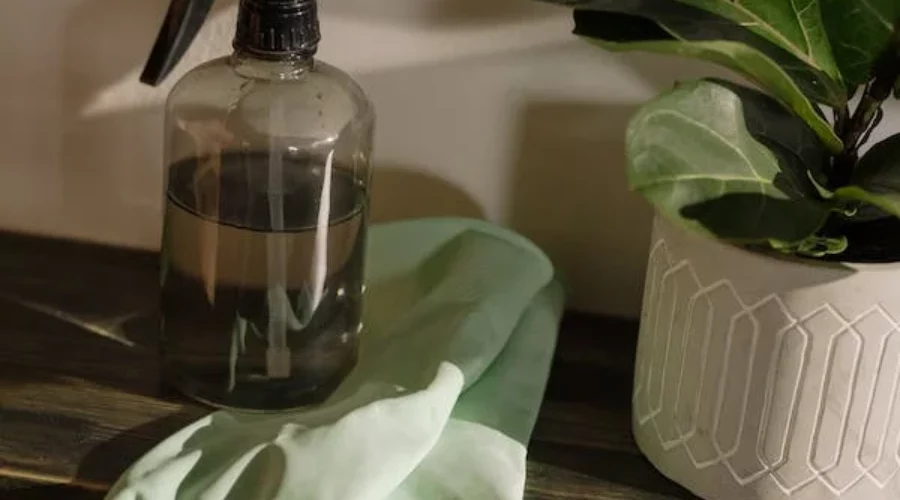Sustainable Living in Rental Properties
In an era of increasing environmental consciousness, sustainable living has become a priority for many individuals. While homeowners have the flexibility to implement eco-friendly practices, what about those living in rental properties? The good news is that sustainable living can extend to rental properties too. This article explores the concept of embracing eco-friendly living spaces within rental apartments, highlighting the benefits for both tenants and the environment.
From energy-efficient appliances to green building materials, we will delve into various aspects of sustainable living and provide practical tips for tenants and landlords alike.

Importance of Sustainable Living in Rental Properties
Sustainable living in rental properties is not just a passing trend; it is an essential practice that contributes to a greener future. Renters can actively participate in reducing their carbon footprint by embracing eco-friendly living spaces. By making small changes, tenants can make a significant impact on the environment, conserve resources, and create healthier living environments. By prioritizing sustainability, we can create a more sustainable and livable future for all
Sustainable living practices contribute to healthier living environments. By reducing exposure to toxic chemicals, promoting natural light and ventilation, and using eco-friendly materials, rental properties can enhance the physical and mental well-being of tenants. Healthy living spaces can lead to increased tenant satisfaction and better tenant retention rates
Energy Efficiency and Conservation
One of the primary aspects of sustainable living in rental properties is energy efficiency. Tenants can take several steps to reduce energy consumption, such as using energy-efficient appliances, switching to LED lighting, and utilising smart thermostats. Landlords can also play a crucial role by investing in energy-efficient upgrades for their properties, such as insulation, solar panels, and efficient HVAC systems. This not only benefits the environment but can also lead to lower utility bills for tenants.
Water Conservation Measures
Water conservation is another vital component of sustainable living. Tenants can adopt water-saving habits, such as fixing leaky faucets, taking shorter showers, and using low-flow fixtures. Landlords can contribute by installing water-efficient toilets, showerheads, and faucets in their rental properties. Additionally, implementing rainwater harvesting systems can help reduce dependence on municipal water sources.
Green Building Materials and Eco-Friendly Decor
When it comes to sustainable living, the choice of materials and decor plays a significant role. Renters can opt for eco-friendly flooring options like bamboo or cork, which are renewable resources. Choosing low-VOC paints and natural cleaning products can also contribute to a healthier indoor environment. Landlords can incorporate sustainable design elements during renovations, such as using reclaimed materials, installing energy-efficient windows, and providing recycling facilities.

Waste Management and Recycling
Proper waste management and recycling are integral to sustainable living. Tenants should be encouraged to segregate waste and recycle as much as possible. Landlords can facilitate recycling by providing designated recycling bins and educating tenants about the importance of waste reduction in the rental apartments of the UAE.
Eco-friendly cleaning products in sustainable living in rental properties
Educate tenants about the importance of using eco-friendly cleaning products that are free from harsh chemicals and toxins. Provide recommendations for natural cleaning alternatives.

Benefits of Sustainable Living in Rental Properties:
Cost Savings: Energy-efficient appliances and water conservation measures lead to lower utility bills for both tenants and landlords, providing significant cost savings in the long run.
Enhanced Marketability: With the increasing demand for sustainable living, rental properties that offer eco-friendly features have a competitive advantage in the market. They attract environmentally conscious tenants who are willing to pay a premium for such spaces.
Health and Well-being: Sustainable living spaces often prioritize indoor air quality, natural lighting, and access to green areas, contributing to the health and well-being of occupants. Such environments promote productivity, reduce stress, and foster a sense of community.
Conclusion
Sustainable living in rental properties in Dubai is not only feasible but also crucial for creating a greener future. By embracing eco-friendly living spaces, tenants can contribute to environmental conservation, reduce their carbon footprint, and enjoy healthier living environments. On the other hand, landlords can attract environmentally conscious tenants, increase property value, and reduce operating costs through energy and resource-efficient upgrades. With collective efforts, rental properties can become sustainable havens that promote a harmonious relationship between humans and the environment.
By adopting energy-efficient practices, conserving water, using eco-friendly materials, implementing waste management strategies, and collaborating with local environmental organizations, tenants and landlords can actively participate in the sustainable living movement. Together, we can create a brighter, greener future for healthier living in Dubai’s rental apartments.
FAQs
-
How can I find rental properties that promote sustainable living in rental properties?
To find rental properties that promote sustainable living, you can start by conducting online searches using keywords like “eco-friendly rentals” or “sustainable rental properties.” Additionally, you can explore real estate websites and rental platforms that have filters or categories specifically for eco-friendly or energy-efficient properties. It’s also helpful to directly contact property management companies and landlords to inquire about their commitment to sustainability and any eco-friendly features they offer.
-
Are there any government incentives for landlords to implement eco-friendly initiatives?
Yes, in many countries, there are government incentives and programs aimed at encouraging landlords to implement eco-friendly initiatives. These incentives can include tax credits, grants, and financial assistance for implementing energy-efficient appliances, renewable energy systems, and water-saving measures. It’s advisable to check with local or national government agencies responsible for energy or environmental policies to learn about available incentives and requirements in your specific area.
-
Can I make my rental property more energy-efficient without major renovations?
Yes, you can make your rental property more energy-efficient without major renovations. Start by focusing on small changes that can have a significant impact. Replace traditional light bulbs with energy-efficient LED bulbs, install programmable thermostats to regulate heating and cooling, and seal any air leaks around windows and doors. You can also encourage tenants to practice energy-saving habits like turning off lights and appliances when not in use. These simple steps can contribute to reducing energy consumption and making your rental property more eco-friendly.
-
What are some easy ways to incorporate recycling in a rental property?
Incorporating recycling in a rental property is relatively simple. Start by providing designated recycling bins for different materials such as paper, plastic, glass, and metal. Clearly label these bins and place them in convenient locations. Educate tenants about the importance of recycling and provide guidelines on what can be recycled. Consider partnering with local recycling facilities or waste management companies to ensure proper disposal of recyclable materials. Regularly communicate with tenants about recycling practices and address any questions or concerns they may have.
-
Are there any certifications or standards for sustainable rental properties?
Yes, there are certifications and standards for sustainable rental properties that provide assurance to tenants about the eco-friendly features and practices of a property. One such certification is LEED (Leadership in Energy and Environmental Design). Which assesses a building’s sustainability in terms of energy efficiency, water usage, materials, and indoor environmental quality. Another certification is ENERGY STAR, which focuses on energy-efficient appliances and systems. Additionally, some regions or countries may have their own sustainability certifications or standards. When looking for sustainable rental properties, it’s beneficial to inquire about these certifications or standards to ensure the property meets recognized sustainability criteria.




